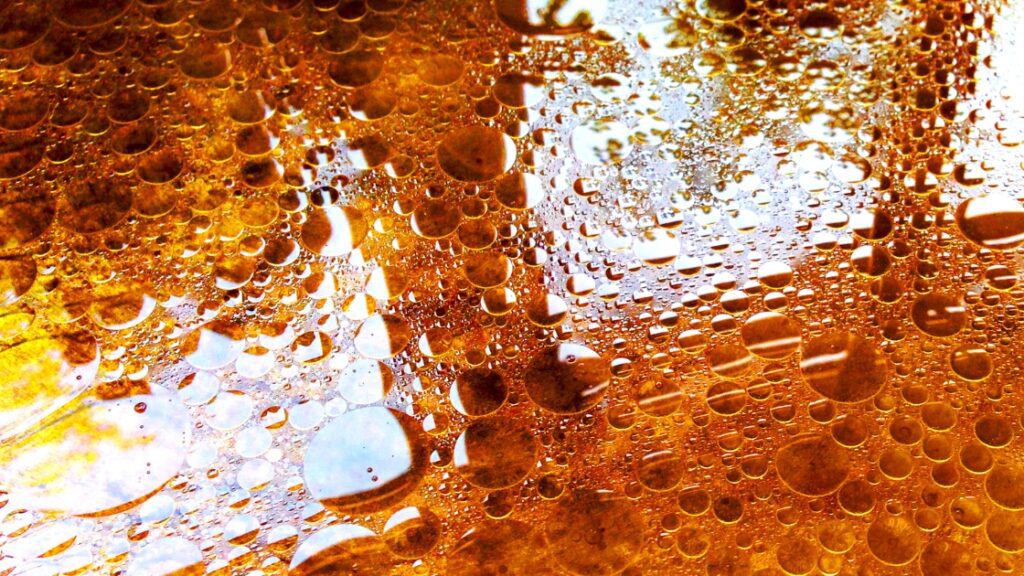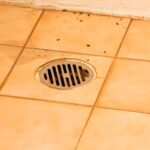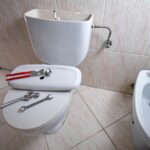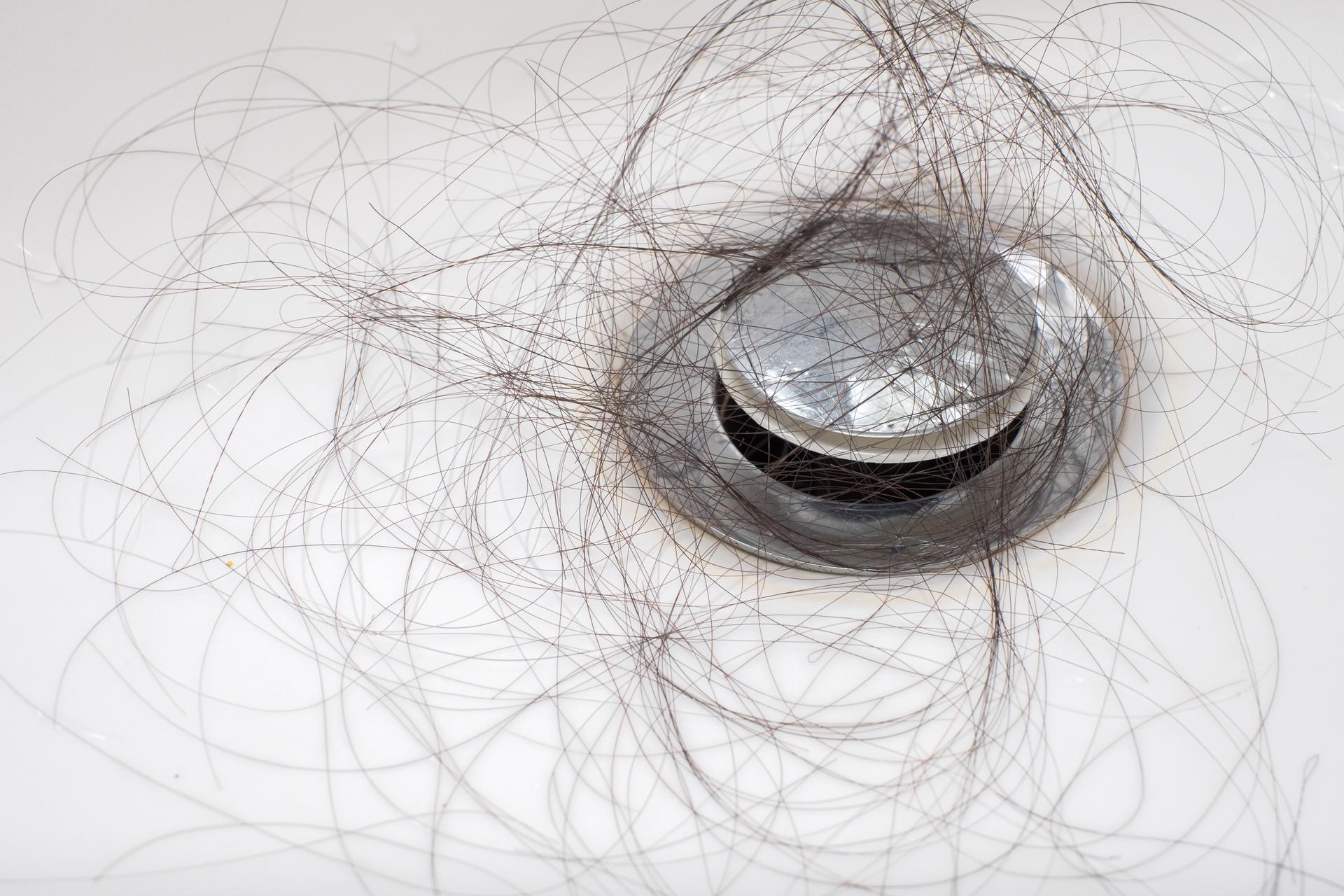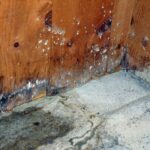Grease – that inevitable byproduct of cooking. It may seem convenient to dispose of it down the drain, but here’s the harsh reality: pouring grease down your kitchen sink is a recipe for disaster. In this comprehensive blog post, we’ll delve into the ten compelling reasons why you should never, under any circumstances, pour grease down the drain.
- Stubborn Clogs: Grease, when hot, may be a liquid, but as it cools, it solidifies into a thick, sticky substance. When you pour it down the drain, it clings to the pipe walls, creating a perfect environment for collecting food particles, soap scum, and other debris. This buildup leads to stubborn clogs that can impede water flow and eventually require costly plumbing repairs.
- Drain Blockages: Grease doesn’t stop at clogging your kitchen pipes. As it travels through your plumbing system, it can combine with other substances, forming obstructions in your main sewer line. These blockages can result in sewage backups into your home, a scenario nobody wants to encounter.
- Fatbergs: When grease makes its way into the municipal sewer system, it can combine with other waste and form fatbergs. These colossal clumps of grease and debris can block entire sewer lines, causing havoc for cities, municipalities, and the environment.
- Environmental Damage: Pouring grease down the drain might seem like a convenient disposal method, but it’s far from eco-friendly. Grease that enters water treatment facilities must be removed through extensive and expensive processes. When it ends up in natural water bodies, it harms aquatic ecosystems and poses environmental hazards.
- Costly Plumbing Repairs: The repercussions of pouring grease down the drain can lead to costly plumbing emergencies. From calling in a plumber to repairing or replacing pipes and addressing water damage, the financial burden can be substantial and easily avoidable.
- Foul Odors: As grease accumulates and interacts with bacteria in your pipes, it produces unpleasant, foul-smelling gases. These odors can permeate your kitchen and home, creating an uncomfortable living environment. As grease sits in your pipes, it provides an ideal breeding ground for bacteria. These microorganisms break down the grease through a process called anaerobic digestion, which generates a variety of gases as byproducts. These gases include hydrogen sulfide, which has that characteristic rotten egg smell, and methane, known for its noxious odor. Over time, these gases can permeate your plumbing system and escape into your kitchen and home, creating an uncomfortable and unpleasant living environment. The foul odors can be particularly noticeable when you run water or use your garbage disposal, as these actions disturb the stagnant grease and release the gases into the air. Not only is this unpleasant for you and your family, but it can also be embarrassing when guests visit your home.
- Inefficient Garbage Disposal: Pouring grease down the drain can adversely affect your garbage disposal. Grease-coated blades become less effective, leading to the need for more frequent maintenance and repairs.
- Violation of Regulations: Many cities and municipalities have strict regulations against pouring grease down the drain. Violating these rules can result in fines or penalties, not to mention the guilt of contributing to pollution.
- Slow Drainage: Even before a complete clog forms, grease buildup can lead to slow drainage in your sinks, causing inconvenience and frustration. Slow drainage is an early warning sign of grease buildup in your plumbing system. It occurs as grease accumulates on the inner pipe walls, restricting water flow and collecting debris. While it may start as a minor inconvenience, it can escalate into more severe plumbing issues if left unaddressed. To avoid this frustration and potential damage, always dispose of grease properly and take steps to prevent it from entering your drains in the first place.
- Health Risks: The bacteria that thrive in grease-filled pipes can pose health risks to you and your family. Mold and mildew may also develop, contributing to respiratory problems and allergies.
How to Dispose of Grease Properly – Now that you understand the hazards of pouring grease down the drain, here’s how to dispose of it correctly:
- Cool It Down: Allow the grease to cool and solidify in a container. Place it in the freezer.
- Scrape Dishes: Before washing, scrape dishes and cookware to remove excess grease and food particles into the trash.
- Reuse or Dispose: Depending on local regulations, you can reuse cooled grease for cooking or dispose of it in the trash. If you choose to throw it away, seal it in a plastic bag to prevent leaks.
- Recycle: Some areas offer recycling programs for cooking oil and grease. Check with your local recycling center for options.
Pouring grease down the drain may seem like a quick solution, but it leads to plumbing woes, environmental harm, expensive repairs, and unpleasant odors. Protect your home, community, and the environment by always disposing of grease properly – by cooling, collecting, and recycling or trashing it. These simple steps will save you from the hassle and expense of plumbing problems while making a positive contribution to your surroundings.
You may learn more about what not to put down the drain in this helpful video here.
Regular plumbing maintenance is essential for Dallas homeowners to ensure the efficiency, longevity, and safety of their plumbing systems. By following this comprehensive plumbing maintenance checklist and considering innovative solutions like the Cured In Place Pipe Lining System provided by Metro Flow Plumbing, you can enjoy worry-free plumbing and avoid costly repairs. Prioritize plumbing maintenance, and your Dallas home will thank you with years of trouble-free service.
If you run into any plumbing issues or would like to schedule a camera inspection to identify possible problems that would come to fruition in the winter, give us a call at 214-328-7371. We look forward to hearing from you.

About Metro-Flow Plumbing in Dallas, TX
Metro-Flow Plumbing was founded in 1989 under three core principles: to provide the best plumbing service, outstanding customer service, and to always be honest with its customers. These principles have kept Metro-Flow Plumbing in business for over 30-years. Rick Romero, Founder and Master Plumber at Metro-Flow Plumbing, as well as the trained technicians at Metro-Flow Plumbing, take great pride in the work they provide to their customers in Dallas and surrounding cities. Metro-Flow Plumbing offers a 100% service guarantee to all their customers.

